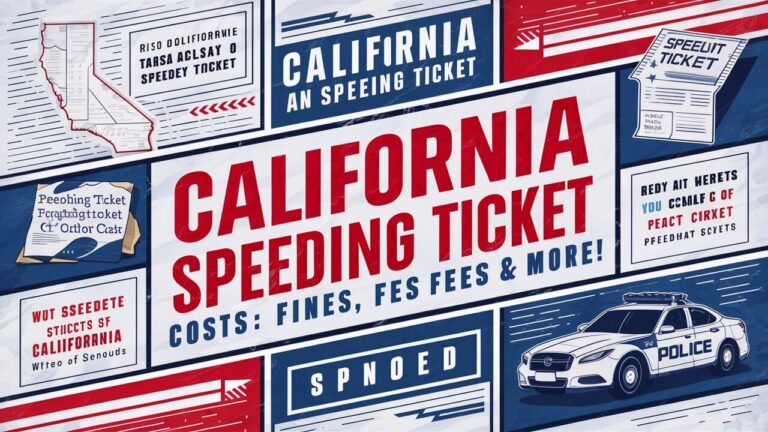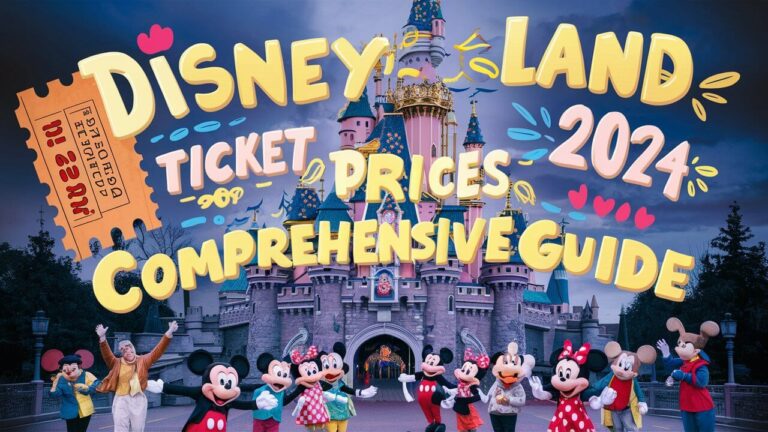How Much Does Texting While Driving Ticket Raise Insurance?
Texting while driving is an expensive habit. It raises car insurance costs substantially. Many drivers don’t realize how much a texting ticket impacts premiums. This article explains the average premium increase, state variations, and ways to manage higher rates.
Understanding the Relationship Between Traffic Violations and Insurance Premiums
Auto insurance premiums are determined by a variety of factors, including your driving record, age, location, type of vehicle, and coverage level. Insurance companies assess risk when determining premiums, and a clean driving record typically translates to lower rates. Conversely, traffic violations signal higher risk, leading to increased premiums.
Many insurers consider Texting while driving a serious offense because it significantly increases the likelihood of accidents. This violation is often classified similarly to other major infractions like speeding or reckless driving, which can result in substantial premium hikes.
How Much Does a Texting While Driving Ticket Increase Auto Insurance Premiums?
The increase in insurance premiums after receiving texting while driving tickets varies based on several factors, including the state you live in and your insurance provider. On average, drivers can expect their premiums to rise by about 23% to 45% after such a ticket. For example, in California, premiums can jump by as much as 45%, while in Texas, they may increase by 28%.
State-by-State Premium Increases
Different states have different approaches and legal stipulations regarding texting while driving violations. Here’s a look at some examples of how rates can vary:
- California: Premiums can increase by up to 45%.
- Texas: An increase of around 28%.
- Alaska: A rise of about 29%.
- Ohio: An average increase of 34%.
State laws influence these variations, the severity of the offense in the eyes of the insurer, and how each state handles traffic violations.
Insurance Company Policies
Insurance companies also differ in how they respond to texting while driving tickets. Some may overlook a single infraction, especially if you have an otherwise clean record, while others might impose steep hikes on your premiums. For instance, some companies track driving violations meticulously and adjust rates based on comprehensive loss data.
Case Studies
Case Study 1: Young Driver in California
A 25-year-old driver in California with texting while driving ticket might see their annual premium increase from $2,000 to approximately $2,900, reflecting a 45% hike. This significant increase is due to the higher risk associated with the age group and the violation.
Case Study 2: Experienced Driver in New Jersey
For a middle-aged driver with a previously clean record, a texting ticket in New Jersey could raise premiums from $2,200 to $3,100. The 43% increase underscores how even one violation can substantially affect insurance costs.
Case Study 3: Teen Driver in Michigan
Teen drivers are already considered high-risk, and texting while driving tickets exacerbate this perception. In Michigan, a teen might see their premiums soar from $4,000 to over $5,000, an increase of 26%.
Factors Influencing the Increase in Insurance Premiums
Several factors can influence the extent to which your premiums increase after a texting while driving ticket:
- Loss of Safe Driver Discounts: Many insurers offer discounts for maintaining a clean driving record. Texting while driving tickets can lead to the loss of these discounts, resulting in higher premiums.
- Reclassification of Risk Levels: Insurance companies assess risk based on driving history. A texting ticket can move a driver into a higher-risk category, leading to increased premiums.
- Long-term Effects: Traffic violations can affect your insurance premiums for several years, typically three to five years, depending on state laws and insurance company policies.
Variability Across States
The impact of texting while driving ticket on insurance premiums can vary widely across states. In some states, like California and New Jersey, the increase can be dramatic. However, states like Idaho and North Carolina have laws prohibiting insurers from raising rates solely based on texting violations.
Additionally, states assign different point values to traffic violations, which can affect both your insurance premiums and your driving privileges. For example, in New York, a texting ticket adds five points to your license, and accumulating 11 points within 18 months can result in a license suspension.
Legal and Safety Implications of Texting While Driving
Texting while driving is illegal in 49 states and Washington, D.C., reflecting the high risk it poses to road safety. In 2021, approximately 410 fatalities were attributed to texting and other cell phone use while driving. These accidents often involve inexperienced drivers, particularly those under 20.
Texting while driving increases the likelihood of an accident by 23 times compared to drunk driving. This statistic underscores the severe risk associated with this behavior, prompting strict legal measures and significant insurance penalties.
Defensive Driving and Prevention Tips
Avoiding texting while driving is crucial for both safety and maintaining reasonable insurance premiums. Here are some strategies to help:
- Use ‘Do Not Disturb’ Mode: Activate this mode on your phone to block notifications while driving.
- Place Your Phone Out of Reach: Keep your phone in the glove compartment or a bag to avoid the temptation of checking it.
- Communicate Your Availability: Inform friends and family when you are driving and unable to respond to messages.
- Use Hands-Free Technology: If you must use your phone, utilize hands-free options to minimize distractions.
Steps to Take If Your Insurance Rates Increase
If your insurance rates increase after receiving texting while driving ticket, there are several steps you can take:
- Defensive Driving Courses: Some states allow you to take defensive driving courses to reduce points on your license and potentially lower your premiums.
- Shop Around: Regularly compare insurance rates from different providers to find the best deal, even with a violation on your record.
- Bundling Policies: Consider bundling auto insurance with other types of insurance, like home or renters insurance, to receive discounts.
Long-Term Strategies for Lower Insurance Premiums
Maintaining a safe driving record is the most effective way to keep your insurance premiums low. Here are some long-term strategies:
- Adhere to Traffic Laws: Always follow traffic regulations to avoid violations and maintain a clean record.
- Safe Driving Programs: Participate in insurance company programs that reward safe driving habits with lower premiums.
- Telematics Devices: Some insurers offer devices that monitor your driving behavior. Safe driving can lead to discounts based on the data collected.
Conclusion
Texting while driving is dangerous and can increase your insurance premiums by 23% to 45%. Understanding this impact helps you see why avoiding texting while driving is important. By staying off your phone, you can keep your insurance costs down and make the roads safer. The best way to avoid high premiums is to drive responsibly and always prioritize safety over convenience.







